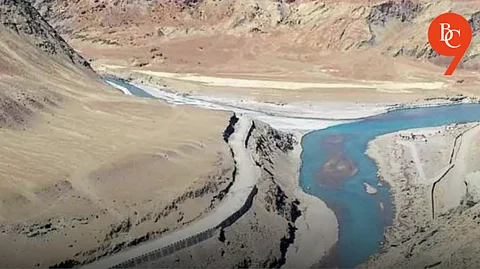

Despite the full and immediate ceasefire agreed upon by India and Pakistan on May 10, 2025, the Indus Waters Treaty (IWT)-which governs the sharing of the Indus river system-remains suspended. Multiple official sources have confirmed that water supply to Pakistan under the treaty will not resume automatically with the ceasefire.
The ceasefire covers all military operations on land, sea, and air but does not include the Indus Waters Treaty or other suspended agreements. Indian government sources have clarified that the suspension of the Indus Waters Treaty remains in effect, and there is no pre-condition or automatic restoration of water flow to Pakistan as part of the ceasefire agreement. The decision to suspend the treaty was taken after the Pahalgam terror attack, with India demanding “credible and irreversible” action from Pakistan against cross-border terrorism before reconsidering the treaty’s status. Along with water, other sanctions on trade, visas, and diplomatic engagement also remain in place until further notice.
The suspension came as a direct response to the Pahalgam attack on April 22, 2025, where India accused Pakistan-based militants of orchestrating the violence. In retaliation, India put the 65-year-old treaty “in abeyance,” declaring that not a drop of Indus water would flow to Pakistan until there was credible action against terrorism.
India’s official position is clear: the Indus Waters Treaty will remain suspended until Pakistan takes verifiable steps to end support for cross-border terrorism. The ceasefire is viewed as a positive step, but it is not sufficient by itself to restore water supply or other suspended agreements.
The ceasefire was brokered with international mediation, but the World Bank, a traditional facilitator of the Indus Waters Treaty, has stated it will not intervene in the current dispute. Future talks between India and Pakistan may address the treaty, but as of now, no such negotiations have been announced.
